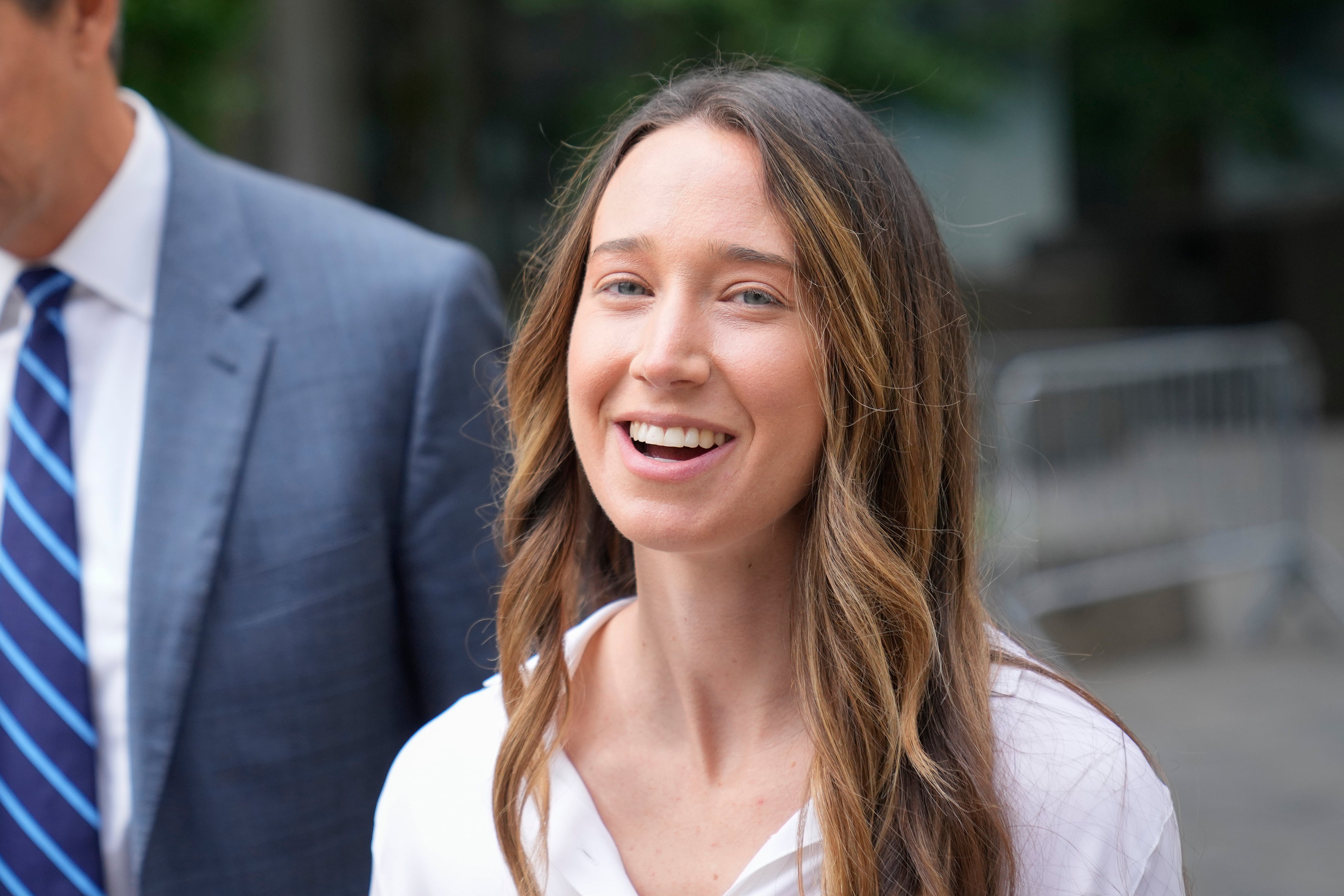NEW YORK (AP) — Charlie Javice, the charismatic founder of a startup company that claimed to be revolutionizing the way college students apply for financial aid, was convicted on Friday of defrauding one of the largest U.S. banks, JPMorgan Chase, out of $175 million by exaggerating her customer base by 10 times.
A jury in New York City returned its verdict after a five-week trial. Javice, 32, faces the possibility of a lengthy prison term. She appeared sullen at the defense table as the verdict was read. A lawyer placed her hand on Javice's back.
Javice was in her mid-20s when she founded Frank, a company with software that promised to simplify the process of filling out the Free Application for Federal Student Aid, a complex government form used by students to apply for aid for college or graduate school.
The company promoted itself as a way for financially needy students to obtain more aid faster, in return for a few hundred dollars in fees. Javice appeared regularly on cable news programs to boost Frank’s profile, once appearing on Forbes’ “30 Under 30” list before JPMorgan bought the startup in 2021.
JPMorgan executives testified that she told them she had over four million clients and would have about 10 million by year’s end, but it turned out there were only about 300,000 customers.
Javice’s lawyer, Jose Baez, told the jury that JPMorgan knew what it was getting in the deal, and made up the fraud allegations due to buyer’s remorse after government regulatory changes made the data it received in the deal useless to its hopes of gaining new young customers.
Defense lawyers asked the judge to set aside the verdict, arguing the evidence was not sufficient to sustain the conviction. The judge said he would hear arguments on that at a later date, and sentencing was set for July 23.
Also convicted Friday was Olivier Amar, effectively the company’s No. 2 and who as chief growth and acquisition officer padded the customer list given to JPMorgan, according to prosecutors.
Javice was among a number of young tech executives who vaulted to fame and media accolades with supposedly disruptive or transformative companies, only to see their businesses collapse amid questions about whether they had engaged in puffery and fraud while dealing with investors.
She founded the company not long after graduating from the University of Pennsylvania’s business school, telling interviewers she was motivated to dive into helping college students connect with financial resources because of her own frustrations navigating the process of getting financial aid.
Frank’s financial backers included venture capitalist Michael Eisenberg. The company offered a product similar to online tax preparation software that it said could help students maximize their financial aid while making the application process much less painful.
JPMorgan was interested in acquiring Frank partly because of the potential it saw in the startup’s supposedly huge list of satisfied customers. The bank believed those young, future college graduates could potentially be sold on the idea of a lifelong partnership with the financial institution.
After buying the company, JPMorgan said it found evidence Javice had lied about her number of customers.
Frank’s chief of engineering, Patrick Vovor, testified at the trial that Javice had asked him to generate synthetic data to support her claim that the company had over 4 million users. At the time, JPMorgan was insisting on verification of the customers. Vovor said he refused her request.
“I told them I would not do anything illegal,” Vovor testified.
Defense lawyers attacked Vovor’s credibility during the trial, suggesting he was resentful that she didn’t want to date him, a claim he denied.
Prosecutors said Javice then paid a college friend $18,000 to use a computer program to create millions of fake names with pedigree information. The results were sent to a third-party data provider that JPMorgan hired to verify the number of customers, but the data provider never checked to ensure the people were real, testimony showed.
Baez said the bank knew what it was getting and the number of customers was in the hundreds of thousands rather than millions.
“JPMorgan is not telling the truth,” he said. “They knew the numbers.”
Javice, who lived in Miami Beach, Florida, had been free on $2 million bail since her arrest in 2023.









